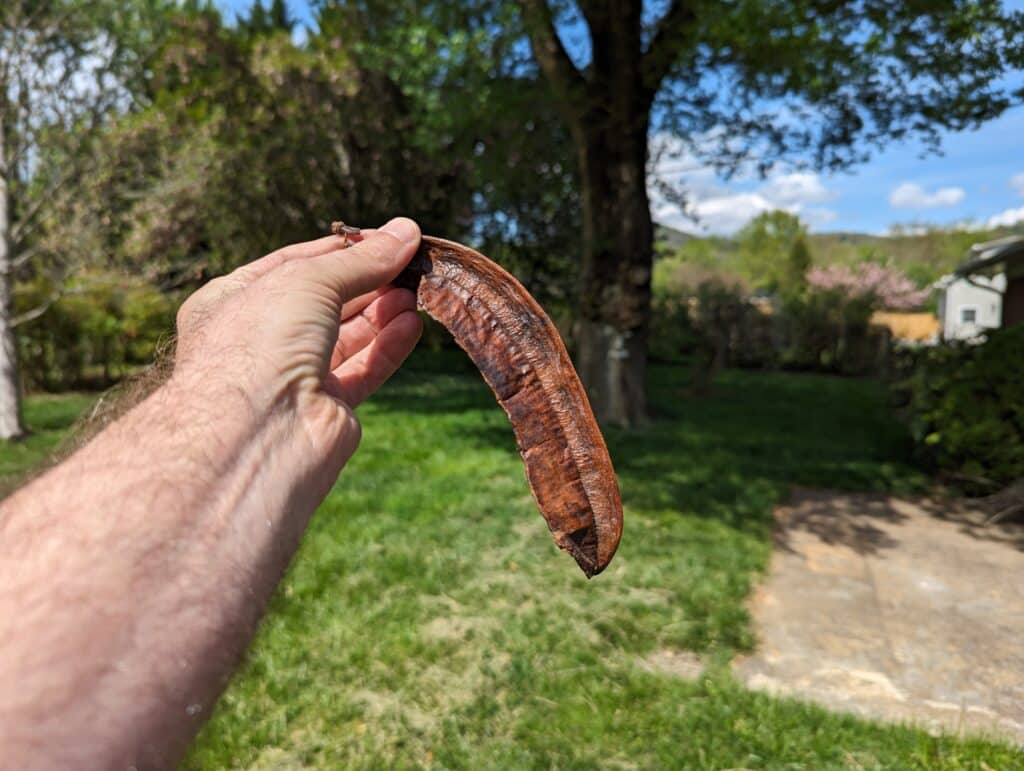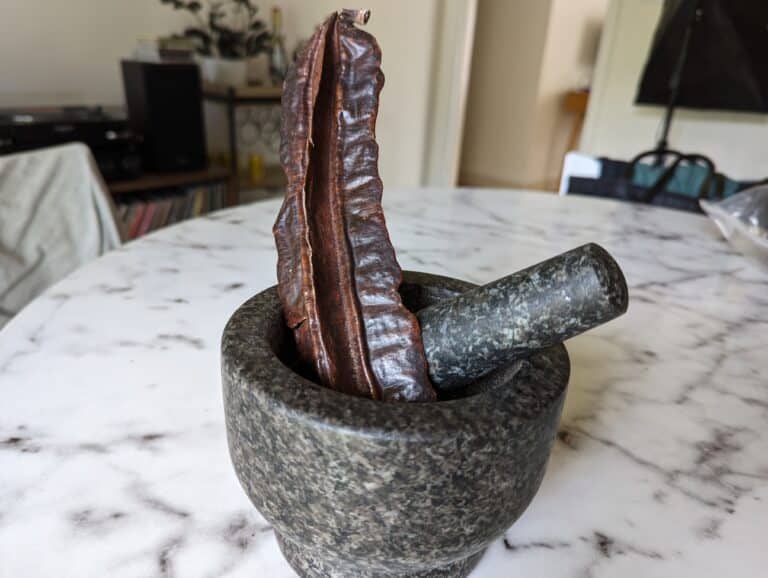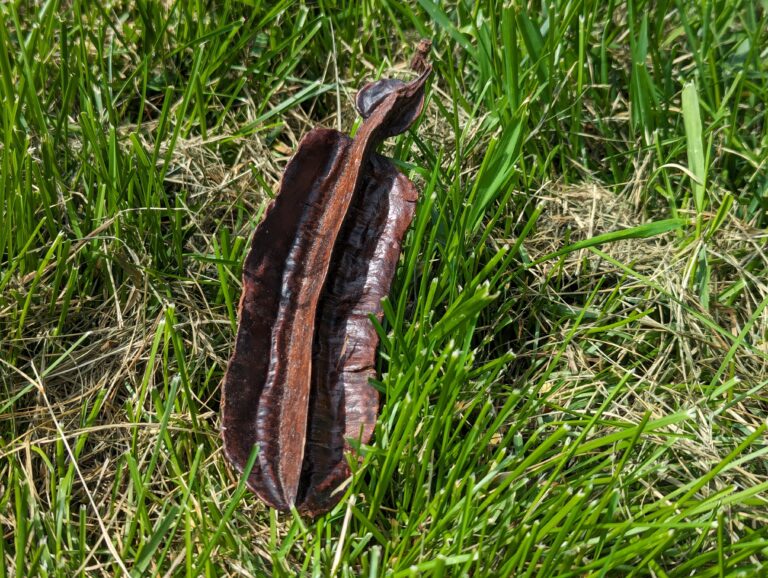
Aidan Fruit
Aidan fruit, known by various names such as Aridan, prekese, uyayak, osakrisa, and dawo, is a tropical fruit used primarily in West African cooking. It is celebrated not only for its unique flavor but also for its medicinal properties.
- Scientific Name: Tetrapleura tetraptera
- Family: Fabaceae
- Genus: Tetrapleura
- Kingdom: Plantae
- Order: Fabales
Overview of Aidan Fruit
Aidan fruit, scientifically known as Tetrapleura tetraptera, is a tropical plant native to West Africa. This fruit is not just a dietary staple in regions like Ghana, Nigeria, and Côte d’Ivoire, but also an integral part of traditional medicine and cultural practices. The fruit itself is distinctive; it has an elongated, pod-like shape with a brownish outer shell and is segmented into multiple parts inside, which contain seeds surrounded by a fibrous pulp.
The tree from which the aidan fruit comes is medium-sized and can reach up to 25 meters in height. It flourishes in the humid tropical forests and is often found in the wild and around rural homes where it is cultivated for its fruits and other uses. The fruit pods are harvested when they mature and are either used fresh or are dried in the sun to be stored and used over extended periods.
Aidan fruit is known by several local names such as ‘Prekese‘ in Ghana, where it is popular in soups and stews for its aromatic and flavor-enhancing properties. Beyond its culinary use, the fruit is steeped in folklore and is used in various traditional rituals and ceremonies across West Africa.
Benefits
Aidan fruit is renowned not only for its unique taste but also for its health benefits, which have been recognized in traditional medicine systems across West Africa.
- Nutritional Value: Aidan fruit is rich in vitamins, especially vitamin C, which boosts the immune system. It also provides minerals like calcium, potassium, and iron. Its high dietary fiber content can help improve digestion and promote a feeling of fullness, which is beneficial for weight management.
- Medicinal Uses: Traditionally, Aidan fruit has been used to manage and treat various ailments. Its anti-inflammatory properties make it beneficial for reducing inflammation and pain, particularly for arthritis and rheumatism. It is also used in managing diabetes, as it can help regulate blood sugar levels.
- Antimicrobial Properties: The fruit has been studied for its antimicrobial properties against a range of pathogens. This makes it a valuable ingredient in the treatment of bacterial and fungal infections.
- Potential Anti-Cancer Properties: Preliminary research suggests that the extracts of Aidan fruit could have anti-cancer properties, particularly in the fight against certain types of cancer cells. This research is still in its early stages but opens up new avenues for the use of this fruit in medicinal therapies.
- Maternal Health: In some cultures, Aidan fruit is used in postpartum care. It is believed to help in the contraction of the uterus to its normal size more quickly and reduce postpartum bleeding.
Substitutes
While Aidan fruit has a unique profile, there are instances where substitutes might be needed, either due to availability issues or personal preferences. Here are a few alternatives that can mimic some aspects of its flavor or function in recipes:
- Tamarind: Like Aidan fruit, tamarind is tangy and slightly sweet. It can be used in soups and stews to provide a similar sourness and depth of flavor.
- Pomegranate Molasses: This is another good alternative, especially for achieving the sweet yet tart profile similar to that of Aidan fruit. It works well in dressings, marinades, and glazes.
- Worcestershire Sauce: For those looking for a quick fix in savory dishes, Worcestershire sauce can provide a similar depth and complexity, though it lacks the sweet profile of Aidan fruit.
- Lemon or Lime Juice Mixed with Honey: If it’s the sweet and sour balance you’re after, a mixture of lemon or lime juice with a bit of honey can serve as a makeshift substitute in some recipes.




